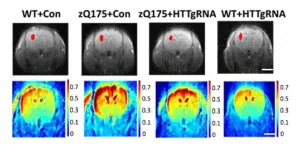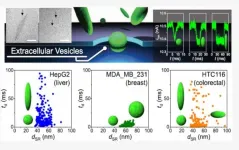Trials have demonstrated high efficacy in individuals with and without obesity against COVID-19-associated hospitalization and death. Therefore, TOS encourages individuals with obesity to undergo vaccination with any of the available vaccines authorized for emergency use by the U.S. Food and Drug Administration as soon as they are able.
"Analysis of COVID-19 vaccine efficacy in certain disease sub-groups has been difficult because the number of trial participants with the disease was too small. This was not the case for obesity. Because the prevalence of obesity among trial participants was high, and because obesity is highly associated with hospital admission and death in COVID-19, the trial results were able to show that, contrary to concerns of reduced vaccine efficacy in people with obesity, that the vaccines were just as efficacious among persons with obesity compared with persons without obesity," said Alexandra M. Hajduk, PhD, MPH, an epidemiologist and associate research scientist in the Department of Internal Medicine (Geriatrics) at Yale School of Medicine in New Haven, Conn. Hajduk is one of the co-authors of the position statement.
The disease of obesity is a recognized risk factor for increased morbidity and mortality in persons with COVID-19 subsequent to infection with the SARS-CoV-2 virus. In addition, obesity is associated with conditions that are independent risk factors and predictors of mortality from COVID-19, including diabetes, cardiovascular, cerebrovascular and pulmonary diseases.
Due to the increased prevalence of severe disease, hospitalization, and death, the Centers for Disease Control and Prevention (CDC) identified obesity as body mass index (BMI) ≥30 kg/m2 as a high-risk medical condition in the COVID-19 pandemic. On Dec. 20, 2020, the CDC's Advisory Committee on Immunization Practices recommended that persons aged 16-64 years with obesity should be prioritized for vaccination in Phase 1c of the phased allocation to provide guidance for federal, state and local jurisdictions where vaccine supply was limited.
Authors of the position statement wrote the document in response to published literature, as well as inquiries made to the Society by patients, providers, Society members, policymakers and others regarding the efficacy of vaccines in persons with obesity against SARS-CoV-2.
"In addition to general misconceptions about the disease of obesity, speculation on the effectiveness of COVID-19 vaccines in obesity has certainly added to vaccine hesitancy in those individuals with obesity. I hope this position statement not only will encourage those with and without obesity to get vaccinated, but to continue the conversations on the existing weight bias in our current health policies and poor coverage and reimbursement of effective treatments for obesity," said first author, W. Scott Butsch, MD, MSc, director of obesity medicine at the Bariatric and Metabolic Institute at the Cleveland Clinic in Ohio. In their review, the authors found the following based on each of the vaccines:
Pfizer: In a sub-group analysis of the 13,218 participants with obesity (BMI ≥30 kg/m2, 31.5% of the study cohort), vaccine efficacy was 95.4 % among participants with obesity compared to 94.8% among participants without obesity. Further stratification by age revealed vaccine efficacy of younger adults (age 16-64) with obesity (94.9 %) and older adults (age ≥65) with obesity (100%).
Moderna: In a sub-group analysis among participants with severe obesity (BMI ≥40 kg/m2; 6.5% of cohort) demonstrated a vaccine efficacy of 91.2%, with only one case of severe COVID-19 illness identified among 901 participants with severe obesity, compared to 11 cases among 884 participants in the placebo group with severe obesity. Post hoc analysis reported a vaccine efficacy of 95.8% for participants with obesity (BMI ≥30 kg/m2; 34.5 percent of cohort), with 2 COVID-19 cases in the vaccine group and 46 in the placebo group.
Johnson & Johnson: There were 12,492 participants (28.5% of cohort) with obesity (BMI ≥30 kg/m2) in the trial. Vaccine efficacy 14 days after dose one was 66.8% and 65.9%, 28 days after dose one compared to placebo in participants with BMI ≥30 kg/m2. There were no deaths attributable to COVID-19 in the vaccine group, whereas 6 of the 7 fatalities due to COVID-19 in the placebo group were among participants with obesity.
AstraZeneca: Participants with obesity (BMI ≥30 kg/m2) comprised 19.4% and 20.3% of each trial cohort and was the most common comorbid condition. In an interim sub-group analysis of participants with one or more comorbidities, the vaccine efficacy was 73.4%, though, in the updated sub-group analysis, the vaccine efficacy was 62.7%. The specific vaccine efficacy and safety data in persons with obesity is not yet published.
The following recommendations are currently endorsed by TOS regarding vaccine efficacy in persons with obesity:
1. TOS has confidence in the FDA-approved vaccine trials and the CDC's Advisory Committee on Immunization Practices updated interim vaccine allocation recommendations in the indicated U.S. populations, including those individuals with obesity and severe obesity.
2. TOS recommends that persons with obesity be vaccinated for prevention of COVID-19, in agreement with CDC recommendations, as obesity is clearly associated with an increased risk of more severe course of COVID-19 disease and death.
3. There is no definitive way to determine which COVID vaccine is "best." Current FDA-approved COVID-19 vaccines from Pfizer, Moderna, and Johnson & Johnson were all highly efficacious against COVID-19--associated hospitalization and death in trials, and were found to be equally efficacious in persons with obesity compared to normal weight individuals. TOS advises persons with obesity to accept whichever available vaccination is offered.
4. Publication of long-term vaccine efficacy outcomes, stratified by obesity status, in peer-reviewed journals is needed and is strongly encouraged.
5. Currently, available peer-reviewed data do not support the hypothesis of impaired humoral responses to SARS-CoV2 vaccine in people with obesity.
6. TOS recommends that in the development of care plans for patients with COVID-19, obesity (BMI >30kg/m2) and severe obesity (BMI ≥40kg/m2) should be included as a significant risk of more severe course and outcome of COVID-19.
7. TOS strongly supports evidence-based weight management therapies which support a healthy BMI and the promotion of COVID-19 prevention strategies, including vaccine prioritization. TOS strongly supports policies which ensure access to such treatments, including adequate and equitable coverage for behavioral, medical, device and surgical treatments for obesity.
TOS plans to monitor emerging data on vaccine efficacy and will issue an updated evidence-based position statement at a future time.
"As new, more transmissible variants of SARS-CoV2 emerge, including the Delta variant, vaccination efforts are even more pressing to help limit the spread of disease. These vaccines work in individuals with and without obesity. We want to end this pandemic. Let's make it happen by getting vaccinated," said Catherine Kotz, PhD, FTOS; professor, University of Minnesota (Integrative Biology and Physiology), associate director of research, Geriatric Research, Education and Clinical Care, Minneapolis VA Health Care System; and president of The Obesity Society. Kotz is a co-author of the position statement.
"Accruing data on obesity and risk of COVID-19 severity are shocking, alarming and tragic. As individuals with obesity have a greater risk of severe COVID-19, in a sense they have even more to gain by getting vaccinated, preventing heart-breaking outcomes. By getting vaccinated, we are protecting ourselves and each other; let's get vaccinated!," said Ania M. Jastreboff, MD, PhD, associate professor, Yale University School of Medicine, an endocrinologist and obesity medicine physician-scientist and vice chair of TOS's Clinical Care Committee. Jastreboff is the senior author of the position statement.
INFORMATION:
Other authors of the position statement include Michelle I. Cardel, of WW International, Inc., New York, NY; William T. Donahoo of Department of Health Outcomes and Biomedical Informatics, University of Florida College of Medicine, Gainesville, and Department of Medicine, University of Florida College of Medicine, Gainesville; Theodore K. Kyle of ConscienHealthTM, Pittsburgh, Pa.; Fatima Cody Stanford of Massachusetts General Hospital, Department of Medicine (Neuroendocrine Unit), Department of Pediatrics (Division of Endocrinology), Nutrition Obesity Research Center at Harvard, Harvard Medical School, Boston, Mass.; and Lori M. Zeltser of Naomi Berrie Diabetes Center, Department of Pathology & Cell Biology, Columbia University Irving Medical Center, New York, NY.
The position statement, titled "COVID-19 Vaccines are Effective in People with Obesity: A Position Statement from The Obesity Society", is published online in Obesity.
The Obesity Society (TOS) is the leading organization of scientists and health professionals devoted to understanding and reversing the epidemic of obesity and its adverse health, economic and societal effects. Combining the perspective of researchers, clinicians, policymakers and patients, TOS promotes innovative research, education and evidence-based clinical care to improve the health and well-being of all people with obesity. For more information, visit http://www.obesity.org.






